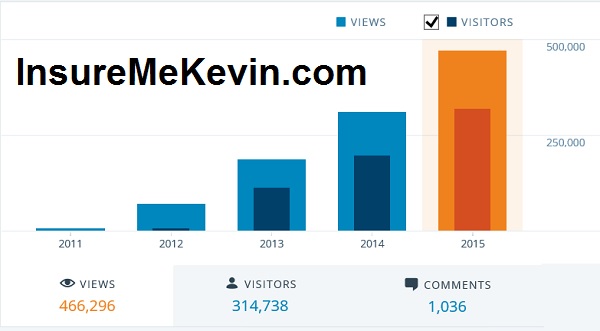
It’s not who you know, but what you produce that counts.
It took me a long time to realize that the old adage of “It’s not what you know, but who you know” with respect to success was a crock of crap. Regardless of what or who you know, if you can’t produce something that people will consume, you will never be successful. The connections help get in you in the door. But if you can’t produce results, service, or products, you will be of little value to your associates.
Who do you know? What do you produce?
The conversation was innocently started with the question of “Why is a private college better than a public college education?” The condensed response was that it is easier or quicker to get your first job out of college if you graduate from private college because of the alumni connections. In this instance, it is who you know, not what you know.
Connections can get you a job
There was strong disagreement that an expensive private four year college education was any better at preparing young adults for a career than a far less costly public university. And, that given the same access and opportunity, a public college graduate will excel equally to a person who receives their bachelor’s degree from a private college. Consequently, there is no need to pay the big bucks for a private college when graduation from a public college will deliver the same results.
Your production is more important
My opinion is that graduates of small four year private colleges probably land their first job in less time than graduates from public institutions on average. But who cares? You still have to perform. You still have to produce something of value to the employer. If the brilliant mathematician from the prestigious college can’t produce the results the employer expects, the math genius won’t have a job for long.
Our economic existence
I truly wish it weren’t true, but our existence and success depends on market forces, basic economics, supply and demand. If you can’t produce something that someone else wants to consume, you can’t exist. You can’t be a success. Your production must be measurable and marketable.
Who produces what?
A call center operator answers telephone calls and provides answers to questions. The production or service can be measured, quantitatively and qualitatively. The demand from the employer is someone who can listen, think, and speak effectively with the callers. If a person has the necessary skills, they can market themselves as a producer of consumer information.
A pastor produces sermons. The more parishioners the pastor attracts the more successful the church becomes. The people in the pews want to consume what the pastor is producing.
A doctor produces completed office visits. Office visits translate into keeping people healthy or helping cure a diseases.
A teacher produces educated children. Throughout the school year a teacher works with students to learn the course material. At the end of the year the expectation is the students will be proficient in the subject matter and can move up to the next grade level. Good teachers who produce educated students will be rewarded.
Artists produce works of art. The musician may play music, but may also compose music. Writers produce everything from short stories, to news reports to novels. If their art is found attractive by consumers they will be a success.
Professional athletes produce either in terms of offense or defense. Some players are measured by how many goals, runs, or baskets they produce per game. Other players produce defensive plays such as tackles, blocks, or outs. If the athlete is not producing what the consumers wants, then they are traded or cut loose.
Who are the consumers of your production?
There is an element of production with every job. The success of the individual in that particular job is how marketable their production is to consumers. You can produce stuff all day long, but if no one wants to consume your production, then it is of little value to your economic existence. If a farmer produces foul tasting vegetables and fruit, no one will buy his products.
Production trumps person
This is the cold and hard truth of life that some people fail to grasp. I was one of those people who failed to make the connection between my worth and my production. The wonderful reality is that quality production trumps private college connections, gender, skin color, disability, or age. This is good news for social misfits like me. Just because I can’t make small talk with total strangers or even industry associates, that doesn’t mean I can’t be relatively successful.
What do I produce?
Perhaps the most difficult task is determining what you are good at producing. I thought I would be good at producing sales. I was wrong. I suck at sales. But I found I like to write for the purpose of helping other people. Over time, I’ve learned how to produce short informative articles that people like to read. Total strangers to me, people consume my production every day. They read my blog posts.
Success is in the eye of the beholder
These people don’t care who I am, what I look like, or how old I am. All they care about is that the information is accurate and it helps them solve a problem. Through a variety of channels, the viewership of my website eventually translates into a modest amount of revenue. For me, sustainability is an important form of success. If I can continue to produce information that translates into income to sustain my modest lifestyle, I am a success.
Production over connections
The public college graduate who produces goods and services that consumers value will surpass a private college graduate who relies solely on alumni connections for a job. The consumer, who might be an employer or client, is the ultimate judge of whether your production is valuable. From my perspective, I’d rather be judged on the quality of what I produce rather than who I know. Friends, relatives and alumni don’t pay my bills. What I produce pays my bills.



